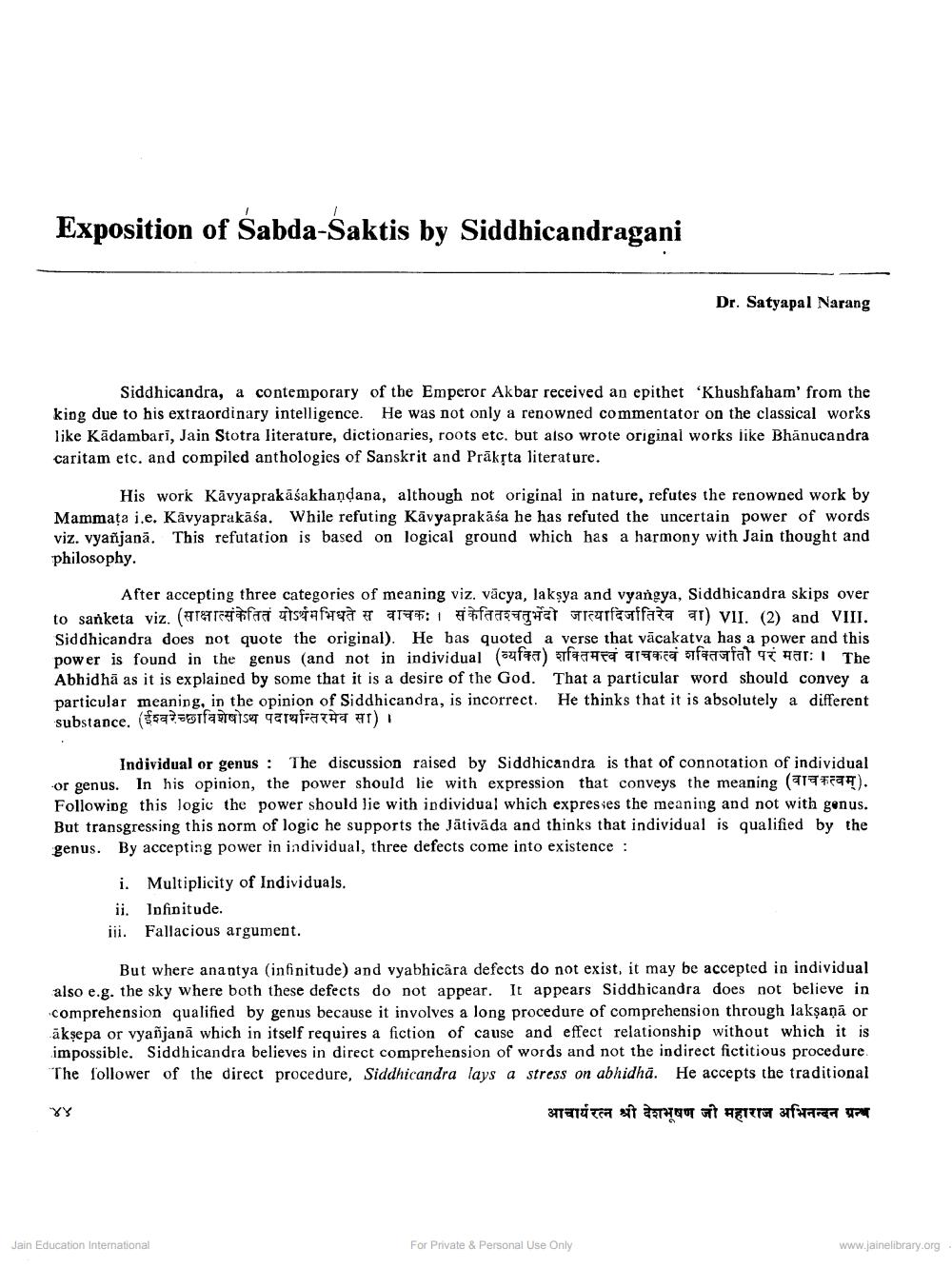________________
Exposition of Sabda-Saktis by Siddhicandragani
Dr. Satyapal Narang
Siddhicandra, a contemporary of the Emperor Akbar received an epithet 'Khushfaham' from the king due to his extraordinary intelligence. He was not only a renowned commentator on the classical works like Kādambari, Jain Stotra literature, dictionaries, roots etc. but also wrote original works like Bhanucandra caritam etc. and compiled anthologies of Sanskrit and Präkta literature.
His work Kāvyaprakāśakhandana, although not original in nature, refutes the renowned work by Mammata i.e. Kävyaprakāśa. While refuting Kavyaprakāśa he has refuted the uncertain power of words viz. vyañjanā. This refutation is based on logical ground which has a harmony with Jain thought and philosophy.
After accepting three categories of meaning viz. vācya, laksya and vyangya, Siddhicandra skips over to sanketa viz. (E f ustafa 29: 1 fanaat catfeffata al VII. (2) and VIII. Siddhicandra does not quote the original). He has quoted a verse that vācakatva has a power and this power is found in the genus (and not in individual (व्यक्ति) शक्तिमत्त्वं वाचकत्वं शक्तिर्जातो परं मताः। The Abhidhā as it is explained by some that it is a desire of the God. That a particular word should convey a particular meaning, in the opinion of Siddhicandra, is incorrect. He thinks that it is absolutely a different substance. (55aatfaraise qarafatha )
Individual or genus : The discussion raised by Siddhicandra is that of connotation of individual or genus. In his opinion, the power should lie with expression that conveys the meaning (1779). Following this logic the power should lie with individual which expresses the meaning and not with genus. But transgressing this norm of logic he supports the Jātivāda and thinks that individual is qualified by the genus. By accepting power in individual, three defects come into existence :
i. Multiplicity of Individuals. ii. Infinitude. iii. Fallacious argument.
But where anantya (infinitude) and vyabhicara defects do not exist, it may be accepted in individual also e.g. the sky where both these defects do not appear. It appears Siddhicandra does not believe in comprehension qualified by genus because it involves a long procedure of comprehension through laksaņā or äksepa or vyañjanā which in itself requires a fiction of cause and effect relationship without which it is impossible. Siddhicandra believes in direct comprehension of words and not the indirect fictitious procedure The follower of the direct procedure, Siddhicandra lays a stress on abhidha. He accepts the traditional
४४
आचार्यरत्न श्री देशभूषण जी महाराज अभिनन्दन ग्रन्थ
Jain Education International
For Private & Personal Use Only
www.jainelibrary.org




